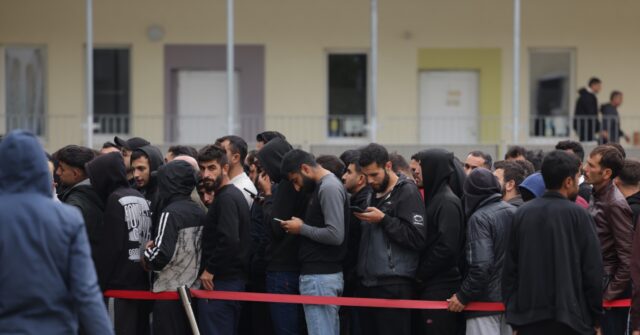In a significant turn of events following the apparent collapse of the Assad regime in Syria, both Germany and Austria have decided to suspend all asylum applications from Syrian nationals for the foreseeable future. This suspension comes in the context of escalating violence in Damascus, where the al-Qaeda-linked Islamist rebel group Hayat Tahrir al-Sham (HTS) is storming the capital. The situation has deteriorated to the extent that former dictator Bashar al-Assad has sought refuge in Moscow, prompting both countries to reassess their asylum policies in relation to the complex circumstances unfolding in Syria.
The Federal Office for Migration and Refugees (BAMF) in Germany announced the temporary suspension of asylum applications due to the current “confusing” situation in Syria, which hinders the ability to make informed decisions regarding asylum claims. Specifically, this suspension affects the vast majority of the 47,000 pending asylum applications from Syrian nationals, with only a few cases that fall under the EU’s Dublin regulations continuing to be processed. The suspension reflects the government’s recognition that the ongoing crisis complicates the determination of whether individuals seeking refuge from Syria can be granted safe haven.
In light of the high volume of Syrian asylum seekers in Germany—nearly 975,000, with about 600,000 holding temporary residence permits—the political implications of this suspension are even more significant. The announcement comes in the wake of public unrest after a violent incident in Solingen, where a Syrian asylum seeker committed a brutal attack, intensifying pressure on Chancellor Olaf Scholz’s leftist government to take a firmer stance on mass migration. Scholz faces a challenging re-election campaign, amid calls for a reevaluation of the country’s immigration policies, including possible deportations to war-torn nations such as Afghanistan and Syria.
Demonstrating the polarized political landscape, Alice Weidel, the chancellor candidate from the right-wing Alternative for Germany (AfD), criticized the celebrations among the Syrian diaspora in Berlin following the fall of Assad. She suggested that those celebrating no longer have a legitimate reason to be in Germany and should consider returning to Syria. Conversely, Minister Nancy Faeser emphasized a potential for returning refugees to rebuild their homeland, while recognizing the instability that still characterizes the situation in Syria, indicating a cautious approach to mass repatriations.
Austria has mirrored Germany’s actions by halting asylum applications from Syrians as well, affecting around 7,300 individuals. Interior Minister Gerhard Karner stated that the country’s family reunification program for Syrian migrants has also been put on hold. This joint decision underscores a growing apprehension about the potential for renewed waves of migration to Europe, especially given the predictions made by the United Nations about food shortages leading to further displacements of up to 1.5 million Syrians in the near future.
Overall, the decisions made by Germany and Austria come at a crucial juncture in the Syrian crisis, reflecting deepening concerns about both domestic safety and international fallout. As the situation remains volatile, Berlin and Vienna are prioritizing the assessment of current circumstances over the traditional humanitarian approach to asylum processing. The broader implications of these policies could reshape the landscape of migration in Europe, especially as they face the dual challenges of protecting vulnerable populations and addressing rising political pressures within their own borders.

